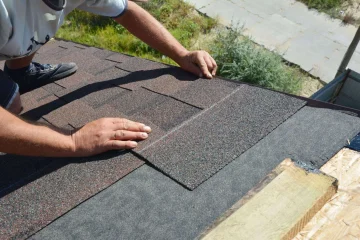When it comes to home improvement, having a grand vision is the easy part—translating that vision into reality while keeping an eye on the budget is where the challenge lies. Home projects often have substantial financial commitments, whether minor upgrades or significant renovations. Without a proper budgeting strategy, costs can spiral out of control, leading to unnecessary debt and stress. However, smart budgeting doesn’t have to be a prohibitive blockade to achieving your dream home. It’s about making each dollar count and finding value in the most unexpected places. This article will explore various proven ways to help your budget go further in home renovation projects, ensuring you maximize resources without sacrificing quality or design.
Renovating homes, especially on a strict budget, requires ingenuity and proactive financial planning. Whether looking for ways to save on materials or seeking the perfect timing to launch your projects, these tips provide practical approaches for staying within budget. One excellent starting point for deals and discounts that could help stretch your renovation budget even more is to click here, where you can find various promotional offers on home improvement necessities.
Understanding Project Costs and Setting Realistic Budgets
Embarking on a home renovation venture begins with understanding and categorizing the potential costs. Before even drafting a budget, research the average costs for the kind of home improvement project you have in mind. Once you have a ballpark figure, list all anticipated costs, ensuring that every aspect, from materials to labor and permits, is accounted for. This exercise helps develop a realistic budget covering all your bases—because nothing derails a project like unexpected costs emerging midway. Additionally, going beyond the expected expenses, a contingency fund is crucial for unforeseen occurrences. Setting aside 10-20% of your contingency budget can keep you ahead of surprises.
Researching Cost-Effective Materials and Alternatives
When planning home renovations, considering energy-efficient upgrades can be a smart move to maximize your budget in the long run. Investing in residential solar energy systems reduces your reliance on traditional power sources and can significantly lower utility costs over time. These systems offer a sustainable solution that pays off by decreasing monthly energy bills and increasing the overall value of your home. While the initial installation may require careful budgeting, numerous incentives and financing options can make solar energy a cost-effective addition to your home improvement plan.
Finding and Hiring Affordable yet Skilled Contractors
Your choice of contractor is as crucial as the materials you select. When looking for contractors, the aim is to balance affordability and skill. The process should begin with ample research—seeking recommendations from trusted sources, reading reviews, and requesting detailed quotes from several companies. Considering the value added by a contractor’s experience, communication skills, and ability to stick to timelines is also essential. A trustworthy contractor offering a slightly higher bid but with a proven track record of efficiency and reliability could save you money in the long term long term.
The Secret to Timing: When to Schedule Home Renovations
Understanding the dynamics of the home renovation industry can help you schedule your projects effectively, leading to potential cost savings. For example, contractors might be more willing to negotiate rates during their slow seasons. Moreover, you’ll likely get work done faster during off-peak times, as contractors have fewer competing commitments. Monitor the weather patterns and local industry cycles to schedule your renovations wisely.
Utilizing DIY Approaches for Smaller Projects
For smaller projects, nothing beats the cost-effectiveness of doing it yourself. DIY projects can significantly reduce labor costs, whether giving the walls a new coat of paint, updating room fixtures, or even undertaking minor landscaping work. Fortunately, many online resources, video tutorials, and community workshops can help a novice gain the skills necessary to tackle home improvement tasks confidently. By taking on manageable projects yourself, you save money and add a personal touch to your home. You don’t have to spend a lot on tools and equipment either, you can find a cordless drill, nail gun, sander, etc., for a good price to help you complete your DIY projects effectively.
Making Use of Discounts and Promotions
Savvy shoppers know the value of timing their purchases to coincide with sales and promotional events. Keep an eye out for annual sales, clearance events, and special promotions that can lead to considerable savings on home improvement items. Tools like price-tracking apps and email subscription lists can provide timely alerts on discounts, ensuring you never miss a deal. Remember to verify the quality and ensure that any promotional items meet your project standards—it’s not a saving if it doesn’t serve the purpose.
Financial Planning: How to Save and Secure Funds for Renovations
Savvy financial planning is the cornerstone of a successful renovation project. A dedicated savings strategy for your home improvement project can ensure you amass the necessary funds over time. Look into various savings accounts and their interest rates, considering the timeline for your project. Explore finance options like home equity loans or personal lines o for more extensive renovations that exceed your savings capacity and credit. A solid financial plan safeguards against project interruptions and protects you from incurring high-interest debt. A resource can be instrumental in providing expert advice for financial planning tailored to home renovations.
Technology as a Budgeting Tool: Apps and Software that Can Help
In the age of technology, there’s an app or software for almost everything, including home improvement budgeting. These digital tools can help homeowners track project expenses, compare quotes, manage invoices, and even remind them of impending payments. With built-in calculators and customizable categories, budgeting apps allow for a real-time overview of your expenses. Moreover, they can serve as a central hub for all renovation-related financial documentation, simplifying staying organized.
Conclusion
In conclusion, effective budgeting is essential for home improvement projects of all scales. With prudent planning, research, and a little resourcefulness, you can make the most of every dollar spent renovating your home. It’s about being proactive, looking for value, and never confusing frugality with compromising quality. Use the strategies discussed to guide your budgeting approach and transform your home into the space you’ve been dreaming of—without letting finances become a nightmare.




